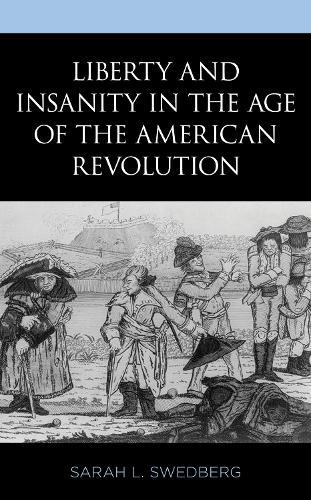
Liberty and Insanity in the Age of the American Revolution
(Hardback)
Publishing Details
Liberty and Insanity in the Age of the American Revolution
By (Author) Sarah L. Swedberg
Bloomsbury Publishing PLC
Lexington Books
4th December 2020
United States
Classifications
Professional and Scholarly
Non Fiction
History of medicine
Political science and theory
616.8900973
Physical Properties
Hardback
276
Width 161mm, Height 230mm, Spine 25mm
590g
Description
In Liberty and Insanity in the Age of the American Revolution, Sarah L. Swedberg examines how conceptions of mental illness intersected with American society, law, and politics during the early American Republic. Swedberg illustrates how concerns about insanity raised difficult questions about the nature of governance. Revolutionaries built the American government based on rational principles, but could not protect it from irrational actors that they feared could cause the body politic to grow mentally or physically ill. This book is recommended for students and scholars of history, political science, legal studies, sociology, literature, psychology, and public health.
Reviews
We know that revolutionary Americans often described their world as one gone mad, but few scholars have dug as deeply as Sarah Swedberg to explicate the meaning of that phrase. At a time when security and peace depended on rational government and rational minds, madness posed an existential threat to both to the nation and the people who made up its citizenry. In lively prose grounded in rich research and original analysis, Swedberg masterfully interweaves political, intellectual, cultural, and medical history to show how Americans in the early republic understood insanity as a grave disease that could devastate both political and human bodies and minds.
-- Shelby M. Balik, Metropolitan State University of DenverIs liberty a natural right Can it be abridged when an individual exhibits signs of mental illnessthat is, madness What then when a whole community descends into the political madness of revolution After decades of intemperate behavior, can such intemperate people launch a successful, rational, self-governing republic Can madness beget liberty Does liberty beget madness
Sarah Swedbergs fascinating exploration of these questions results in an exciting new treatment of Americas founding narrative. Exploiting the hazy line between madness as a disease and a fit of temper, between insanity as a diagnosis or a cultural metaphor, Swedberg analyzes this conundrum using the patients own words in a dazzling new interpretation of the American experiment. Do not miss it.
-- John Lauritz Larson, Purdue UniversityAuthor Bio
Sarah L. Swedberg is professor of history at Colorado Mesa University.
